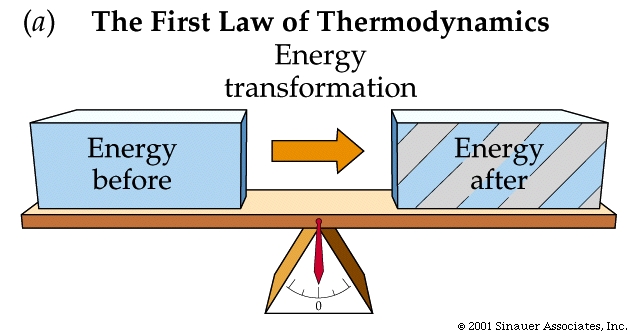
Energy can be of high quality, that is, highly concentrated and usable, or it can be of low quality, such as heat that is released into the universe.
The second law of thermodynamics states that the spontaneous direction of energy flow is from high- to low-quality forms. Each conversion results in production of energy (usually heat) that is unavailable for work. As systems lose energy, they become more disorganized. The measure of this disorder is called entropy.
Plant and animal life maintains a high degree of organization only because it is being resupplied with energy from the sun.
REVIEW: Essentially, the first law of thermodynamics says that��
REVIEW: The second law of thermodynamics states that
PREVIOUS
NEXT
LECTURE 19 INDEX
MAIN INDEX